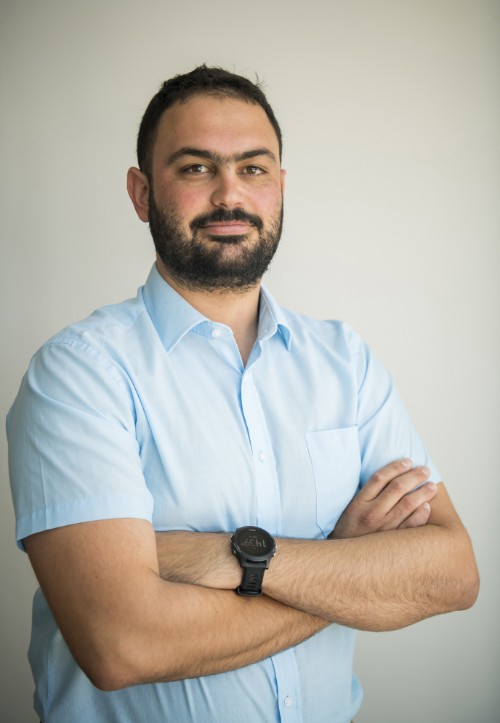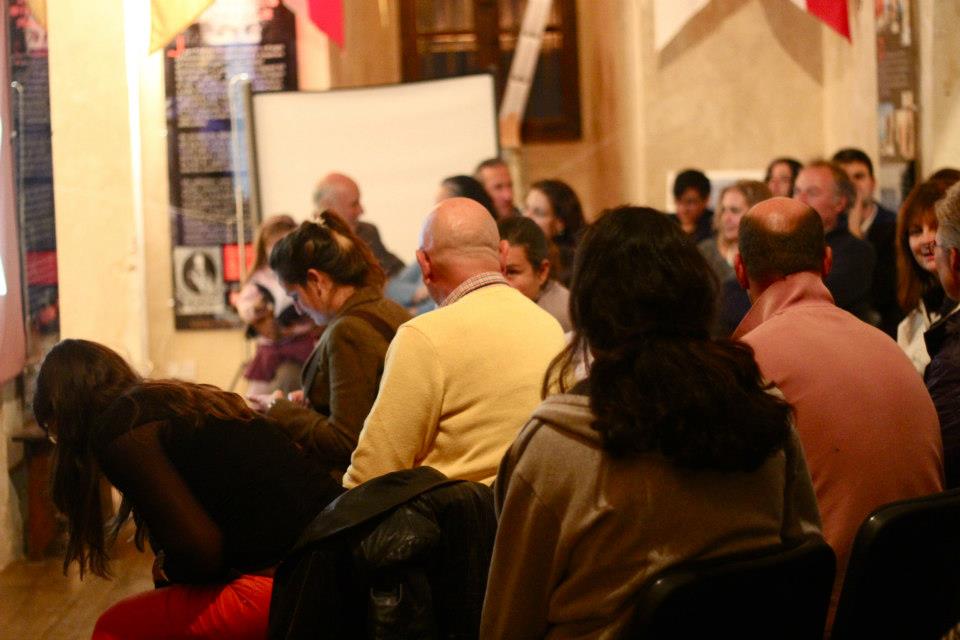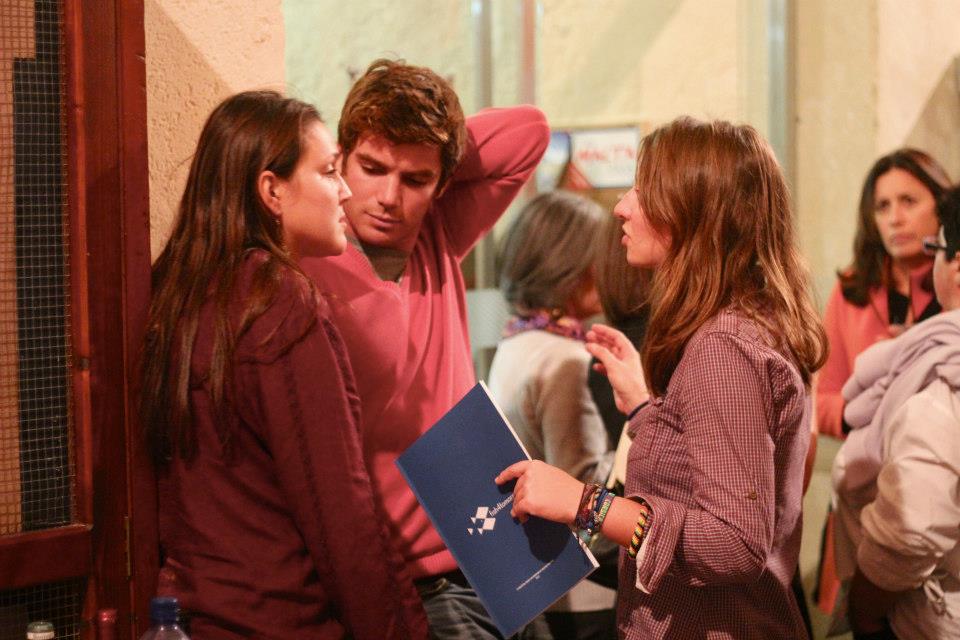
At the last Annual General Meeting Anthony Debono, founder and chairperson of fish4tomorrow, stepped down after an exciting and prosperous 8-year run. I sat down with him to get the full story, his thoughts and his vision for the future.
Anthony Debono has always felt a strong pull to the outdoors. At the age of 10, he joined the Sliema Scouts Group as a Cub Scout and has remained involved ever since. He’s an avid runner, swimmer, and cyclist with an educational background in the hard sciences.
“While I was at Uni I joined a student organisation called Greenhouse which, at the time, was a small group of friends who wanted to use their free time to spread awareness on environmental issues and promoting environmental education.” During his time with Greenhouse, Anthony was taking some credits on fisheries science and was surprised by what he learnt about overfishing and uncontrolled harmful fishing practices. He found this particularly disconcerting since he also occasionally worked in his father’s fine dining restaurant which was well known for its seafood.
“I was very interested to learn about the supply chain aspects of fisheries, something I had never questioned before, despite being part of that value chain for years, both as an avid consumer and part of the restaurant industry.” Anthony started to notice more and more documentaries and books being published about the overfishing issue as his concern grew. “if I had to pick a single inspiration for starting fish4tomorrow it would be a scene somewhere half-way through the documentary version of "The End of the Line" when they get a shot of the Grand Harbour and Charles Clover introduces Malta as the centre of the tuna fishing cartel.”

Anthony approached Nature Trust Malta with a proposal to co-run a campaign on fisheries issues. “We contacted other eNGOs to see if they were interested in working on an inter-NGO collaboration promoting ‘responsible seafood choices’. I still remember an early meeting with around 30 eager activists keen on getting involved... Soon after we had a core team of volunteers from 5 NGOs including Din l-Art Ħelwa, Nature Trust Malta, Sharklab Malta, GetUp StandUp and myself from Greenhouse.”
In the 8 years that followed, the concept of fish4tomorrow changed from being a campaign focused on the bluefin tuna situation to a fully fledged civil society organisation pushing for sustainable seafood on different levels. “Being a totally grass-roots organisation, I see the progress of fish4tomorrow as a ‘campaign’ or ‘entity’ as a kind of evolution. Unlike many NGOs, fish4tomorrow did not have an international network or a mandate from a larger body. We started out as individuals with a genuine desire to make a change where we thought it was necessary.”
“I cannot say that we had a very long term plan when we started out, but the progression seemed to happen in a natural way. In the first two years, we were very much focused on understanding the issues at hand and developing a clear set of goals and strategy to achieve those goals. We held a number of workshops and strategy sessions, dedicated a lot of resources into understanding the landscape, met with fishermen on a regular basis, interviewed and surveyed industry professionals, and studied the consumer landscape. I think the time we took to do this work, completely voluntarily, was key in setting the stage for what was to come.”
With a thorough understanding of the situation, fish4tomorrow started a number of projects which would get the ball rolling. “We were also involved in consultations and some advocacy work like with the Ocean2012 campaign but focused primarily on educational campaigns.” In these few years, fish4tomorrow launched the 25 Nautical Miles report and documentary, and the Quickfish Guide. Once these main steps were completed, it was decided that fish4tomorrow needed to formally set itself up as a civil society organisation.
“I think my proudest f4t moment has got to be the launch of the ‘25 Nautical Miles’ documentary. We had spent a number of months compiling both the report and the documentary.” The launch was held at the Red Tower in Mellieħa and a number of people from the industry, NGOs and government as well as the interviewees were there. “We were astounded by the turnout. Everyone was dressed up and we had some great food prepared by Emma Warrington (Emma’s Kitchen), who was involved with us at the time. The only problem was that as the guests poured in, Matt Demarco, who filmed and edited the documentary, was still on the other side of the island putting the finishing touches to the film and waiting for it to render."

The guests were getting restless and the fish4tomorrow team did everything they could to keep the event running smoothly, all the while worrying that the whole thing was going to turn into a disaster. “Around an hour later than expected, Matt rushes through the door with the final cut! We dimmed the lights and started the viewing. I'll never forget the silence and awe that filled the room as the video progressed.

So why step down after all these years? “I will always look back proudly and fondly on my time with fish4tomorrow and Greenhouse. That being said, I've always maintained that for an organisation to be healthy (especially if it is a voluntary organisation) the leadership should change with time, to allow new people with fresh ideas and energy, space to carry on the mission. I'm proud of what we've accomplished and can say that we reached the goals we set out to achieve in 2010.”
Anthony and I must have spent hundreds, if not thousands, of hours wracking our brains, conceptualising, and generally dissecting the concept and the activities of fish4tomorrow over the years. I took the opportunity to brainstorm what the future of fish4tomorrow should look like one last time.
“I would like to see the organisation continue to grow. I'd like to see new volunteers come on board and set new goals for the organisation. They should set out to achieve them in the best ways they determine by building on the solid basis that we have built over the last years. There is still a big need to promote sustainable consumption of seafood products and it may also be time to join up with other NGOs to help tackle issues like mass marine litter, such as abandoned nets and marine protected areas.”
“Today the goals and mission of the organisation are the same as they were at the start, but the organisation is formally established. The wealth of knowledge and resources that the organisation has gathered over the years is incredible. I would say, although perhaps I am biased, that the name fish4tomorrow is well known in Malta and our message is being heard loud and clear”
